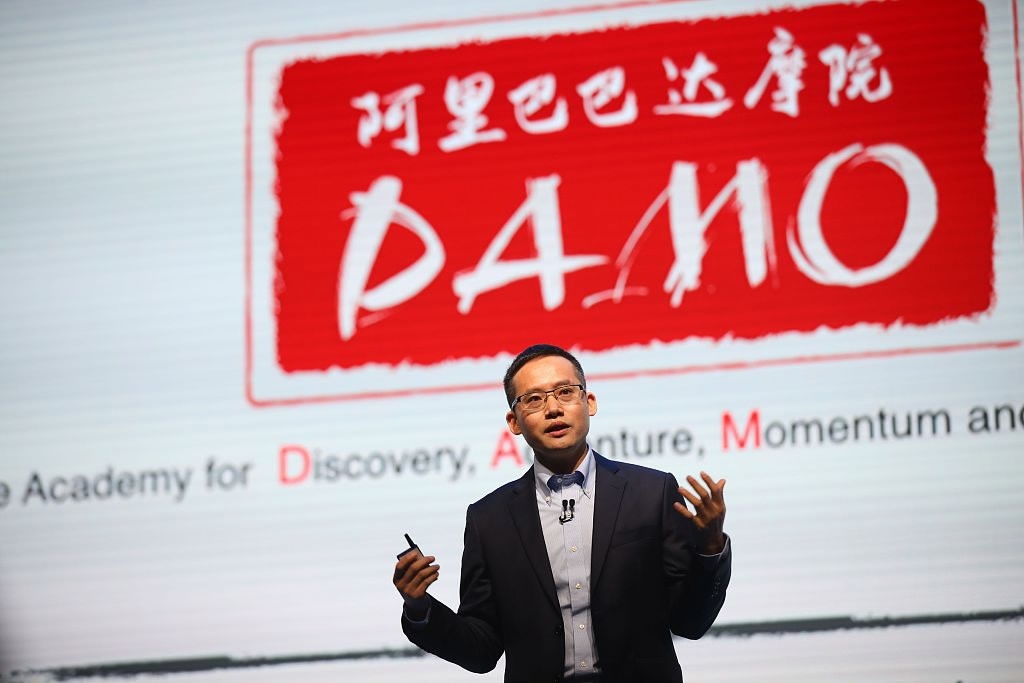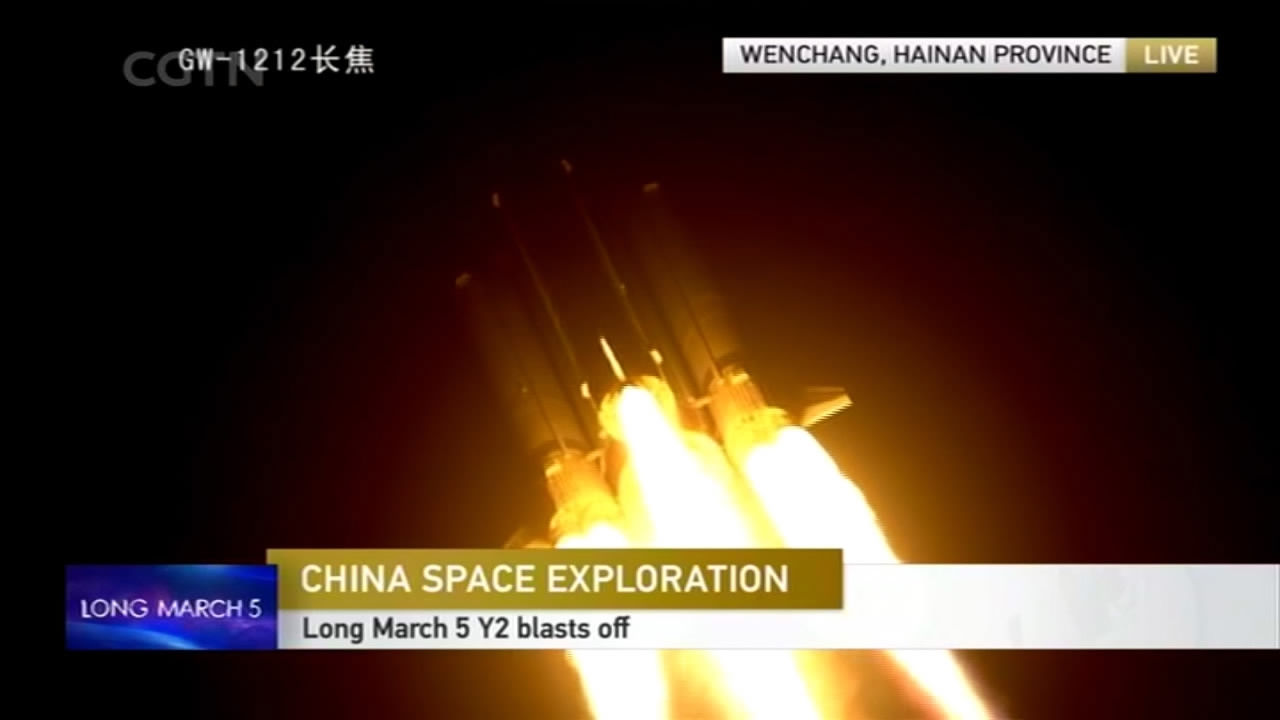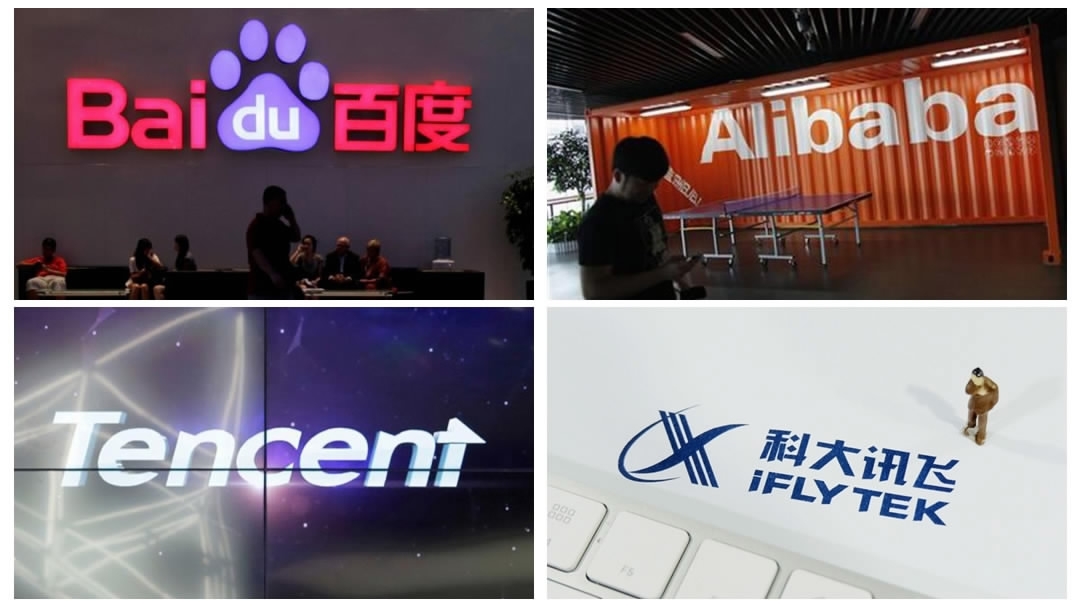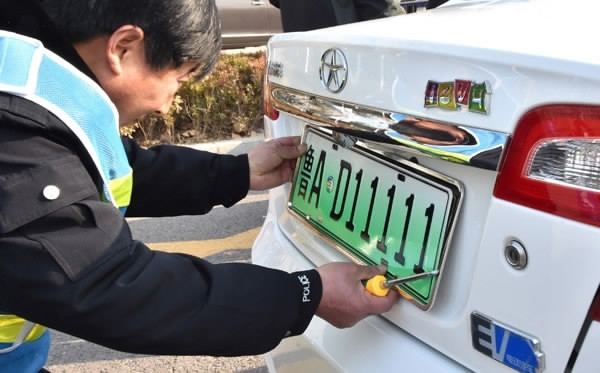
Tech & Sci
12:58, 31-Dec-2017
2017 China Tech Review: Let's look at 2018
By Gong Zhe

Our technology and science section is doing a yearly review, just like others, but on the last day of 2017, let's conclude the review by looking at the future – what cool things are coming up to China's tech world next year?
Major scientific discoveries
China is now paying a lot more attention on basic science research, and the government is building more world-class labs to attract the best scientists.
Private companies like Alibaba also set up research centers in China to make use of this government program.

Alibaba CTO Zhang Jianfeng announces the DAMO research center at the company's annual developer conference in Hangzhou, October 11, 2017. /VCG
Alibaba CTO Zhang Jianfeng announces the DAMO research center at the company's annual developer conference in Hangzhou, October 11, 2017. /VCG
The ability of Chinese researchers' may be doubted by some because a few bad apples in the field have exploited loopholes in the peer review process to get their research published. The withdrawal of these people's articles was one of the worst scandals in China's scientific world this year.
But it implies that there are a lot of researchers in China who really want to achieve something in their field, they just did it in a wrong way. And since the country has introduced a series of strict regulations, they won't next time.
The country also introduced plans to headhunt foreign experts and young graduates who studied abroad.
With the right labs and the right people, it's highly probable that the next big scientific discovery will be made in China.
Fly me to the moon
It's kind of a taboo right now to talk about space in China. The second Long March-5 heavy rocket failed to launch, causing a delay in China's plan to land more robots on the moon.

China's Long March-5 Y2 rocket blasts off. /CGTN Photo
China's Long March-5 Y2 rocket blasts off. /CGTN Photo
Our internal sources at several rocket-building companies said they need more time to build a reliable rocket for further missions to the moon.
No official timetable is currently available, but the previous plan to launch another moon probe in November didn't happen.
The investigation of the failed Long March-5 Y2 is still ongoing. Sources said they now have enough time and patience to do thorough examinations since the target time has already passed.
Based on our observations of previous Chinese rocket-building, it's almost certain the third Long March-5 will be launched in 2018 – and we will try to cover the launch with a live stream, just like before.
AI firms taking to the world stage
China is ambitious in AI, a trend being chased by literally every tech company on the globe.
The country has put vast resources towards AI research, including billions of yuan and favorable policies.
The government even appointed an AI "national team" to explore specific areas, including self-driving cars, smart city development, AI-assisted health care and voice-based interactions.

The four companies that formed China's AI "national team" /Web Photo
The four companies that formed China's AI "national team" /Web Photo
China wants to be the biggest AI power by 2030, but fierce competition lies ahead.
Think of the leading figures in AI worldwide and in most cases, no Asians will pop up in your head, but that may not be the case from next year.
Electronic vehicles (EVs) market expansion
Several Chinese start-ups have promised to mass-produce consumer-level EVs in 2018, including old car industry people looking to get into the new market and Internet companies looking for their next growth point.
They are recruiting international teams, building offices around the globe and trying to replicate Tesla's success in China.
Once mocked as "PPT car makers" for making empty promises, these companies are now nicknamed "UN forces" to mark their growing power and increasing internationalization.
Another main reason to believe in the 2018 EV boom in China is policy support: The government announced this week that it will extend the tax rebate for EV sales for another three years. It's a strong signal that will make car manufacturers across the country far more confident.
The new green-color car plates designed for EVs are also easier to apply compared to traditional blue ones. This could also encourage more people to try the environment-friendly way of traveling.

An employee of the Jinan vehicle administration department installs a plate on an electric car in Jinan, Shandong Province, Dec 1, 2016. /China Daily Photo
An employee of the Jinan vehicle administration department installs a plate on an electric car in Jinan, Shandong Province, Dec 1, 2016. /China Daily Photo
Paid web content goes mainstream
Another phenomenon that may seem small but could definitely become big is that of Chinese web users starting to pay for content online.
The long history of pirated content in China resulted in a "free Internet". People assumed online services should be free and copyright became a joke for hackers.
But things have started to change and in 2018 major content providers in China will stop providing pirated content, in both the open and in the dark.
Earlier this year, it was still possible to find pirated films and music hidden on some major providers' websites, but now the content has either been removed or now requires payment.
More and more Chinese consumers are seeing this as a crowd-funded copyright trade, very similar to the rental and streaming concepts in developed countries.
The incredible rise of China's Internet, in terms of both quality and access, also made consumers feel safe about streaming content. Average video buffering time in China is now less than one second for every 10 minutes, according to the Broadband Development Alliance.
People paying for content will result in a healthy market. The music market in Japan has been proof of this for years. Will the same thing happen in China? We can start finding out tomorrow – in 2018.

SITEMAP
Copyright © 2018 CGTN. Beijing ICP prepared NO.16065310-3
Copyright © 2018 CGTN. Beijing ICP prepared NO.16065310-3